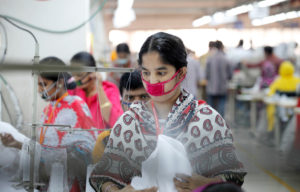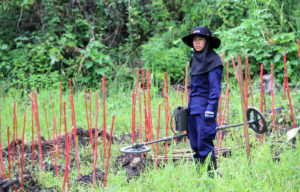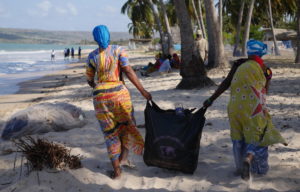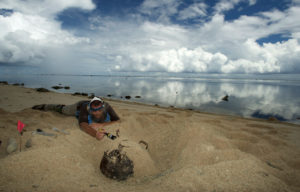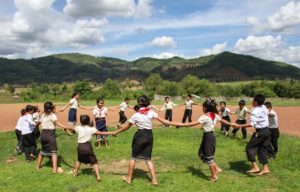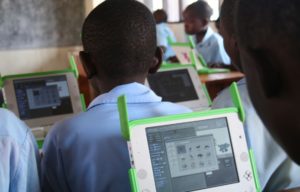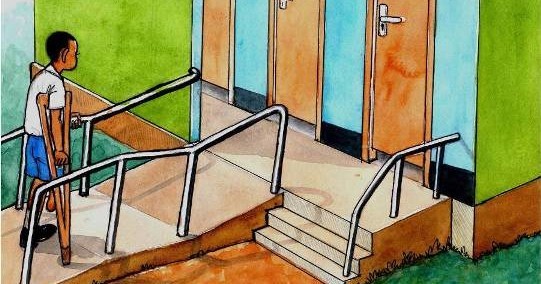
Photo: CCBY Government of the United Republic of Tanzania / Rashid Mbago
School time for Tanzania’s most vulnerable children
Handicap is often a taboo subject in Tanzania, which prevents many children from going to school. The Danish organisation IAS works to train teachers and make local schools more inclusive.
Share
What is IAS?
- International Aid Services Denmark (IAS DK) began in the year 2000.
- IAS DK works with development and humanitarian aid projects.
- The focus is on inclusive education, civil society capacity building, and water access, primarily in Eastern Africa.
- Financing comes primarily from Danida (Danish official development aid), foundations, and private contributions and donations.
- IAS DK is a part of IAS International
Other categories
Region: Africa
Theme: Children & Youth, Education
“Moja, mbili, tatu…” One, two, three. Juliana Rubashai is counting aloud from her place on the floor, to show what she has learnt in school. Her arms and legs are thin, a testament to her physical handicap. Discreetly, smiling, and with a bit of stubbornness, she counts to 20, but her proud mother is keen to add that Juliana is well able to keep counting, and that she also knows the alphabet and can do a bit of reading.
Nine-year old Juliana is one of the children who have received aid through a school project run by International Aid Services (IAS) in the southwestern parts of Tanzania. In these parts, handicaps are subject to taboo, and many of these children stay at home all day, cut off from social contact and basic schooling. The project improves the school facilities by constructing access ramps and handicapped-accessible toilets. In addition, the organisation works to raise awareness with parents and the local community, about the right to education for all. We train teachers and lobby the local authorities and the Ministry of Education. In this way, IAS is participating in the struggle to ensure basic education for everyone.
Juliana’s mother, Zefrina Nandi, was contacted last year by project coordinator Fortunatus Rafael. He gets in touch with families to get an overview of children’s needs and school options. Zefrina Nandi had previously asked at the local school to have her daughter enrolled, but was turned down due to lack of resources at the school. Thanks to the teacher training and accessible toilet facilities, the school was now able to enrol Juliana.
It’s now been a year since Juliana got out of her home and into the classroom with other pupils, and her mother notices a definite improvement.
“Previously, she was very isolated and not happy at all. Now, she has really changed, she’s much happier and always looking forward to getting to school”, says Zefrina Nandi.
Professional pride and more motivation
A part of the project is training teachers in special needs tuition and inclusion. 17 teachers have been trained, and nine of these have received additional training in estimating the degree of a child’s disability. During the first year of the project, 270 children with special needs have been evaluated, and of these, 200 have been enrolled in school.
The teachers Scolastica Nyoni and Bwigane Mwasipu have both benefited from the training, and they appreciate how it has strengthened their skills in the daily work:
“When we teach children with special needs, we now know whom to pay extra attention. This has meant a closer relation between teacher and student”, says Scolastica Nyoni.
Both emphasise that the training has improved their sense of professional pride, and motivated them to learn more. In addition to becoming a resource for the children, the trained teachers are also a big benefit for the rest of the staff, as they share their knowledge when the busy school schedule allows it.
Mental shift in the community
The teachers also notice that big changes have taken place in the local community, since the project began just one and a half year ago.
“Parents are now coming to us to find teachers who can teach their children with special needs. Previously, they did not think that going to school would be possible for these children”, says Bwigane Mwasipu.
Zefrina Nandi is also among those who feel a sea-change in attitudes lately. Many parents with disabled children are looking to her daughter, Juliane, as proof that going to school really is possible, despite physical or mental challenges.
